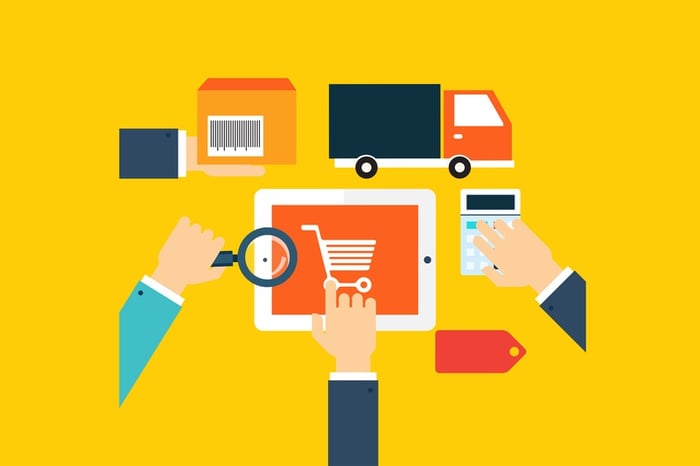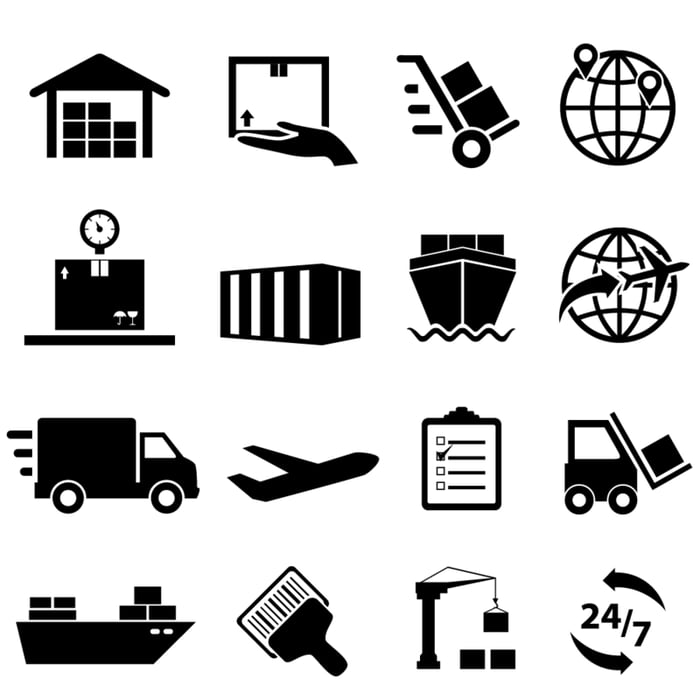The Connection Between NetSuite TMS Use and Success
One of the best ways to ensure shipping success is to enhance your ERP with a NetSuite TMS. This is the connection between NetSuite and your real-life shipping and fulfillment operation. NetSuite's ERP provides users with a ton of helpful tools to scale and grow their business while optimizing processes, but a best-in-class operation can only be realized when combined with a Smart Transportation Management System.
NetSuite TMS defined:
A NetSuite TMS is a transportation management system integration designed to enhance transportation and logistics processes for users. Modern Transportation Management Systems (TMS 2.0) allow companies to streamline and improve their workflow from order processing all the way to post-purchase customer service, tracking, returns and data.
How does using a Smart TMS lead to success?

As with all contemporary business software, the purpose is to provide added convenience to a specific process or set of processes. Word processing software replaced the typewriter and now cloud-based alternatives provide an even more convenient alternative. Manual business management was first replaced by enterprise resource planning systems and legacy transportation management systems. More recently, modern TMS extensions for cloud ERPs like NetSuite provide a truly optimized fulfillment structure. So how does a modern NetSuite TMS lead to success?
A Smart TMS:
- Lowers shipping costs
- Ships all product types
- Provides access to all carrier types
- Offers a simple, beautiful interface
- Sets up in days instead of months
- Includes on-brand tracking
- Automates workflows
- Supports scan to ship functionality
- Optimizes packing
- Provides tools for vendors and drop shippers
- Presents data in real time
- Enforces operational best practices
- Increases conversion rates
- Decreases customer service calls
What are the uses of a modern TMS?

TMS 2.0 systems allow NetSuite users to fully-optimize their shipping and fulfillment processes. Here's what they offer:
- Multi-mode and multi-carrier rating and booking
- Multi-carrier access from one platform
- Automated performance reporting
- Integration with other software and hardware
- Omnichannel support
- Fulfillment options from multiple locations
- Drop shipping compatibility
- Batch order processing
- Branded delivery tracking
- Automated packing slip creation
- Optimized box size determination
- And much more...
What do these uses mean for your business?
Choosing an integration that works with your favorite eCommerce and ERP platforms allows access to all of your information, rule-setting and reports from one dashboard. Fewer manual processes create a better opportunity for savings and earnings. ShipHawk's TMS 2.0 has helped companies save up to 25% on hard shipping costs and 50% or more on soft costs. These numbers are pretty incredible.
If you're wondering how one tool can help you save 1/4 of your shipping costs, think about it like this: Nearly every process is automated through the use of a transportation management system and TMS-powered insights are enough to rave about since they facilitate business growth that is driven by real data.

Conclusion
A NetSuite TMS provides users with a unique set of functions designed to help companies perfect their shipping strategies. Without it, many regular processes involved with retail fulfillment are more manual than they need to be. With the right tools, you will be able to scale your company and drive confidently on the road to extreme success. Use powerful automation, analytics and reports to save time and energy.
If you want to know more about TMS options that are compatible with your NetSuite ERP, contact a an expert at ShipHawk today.
